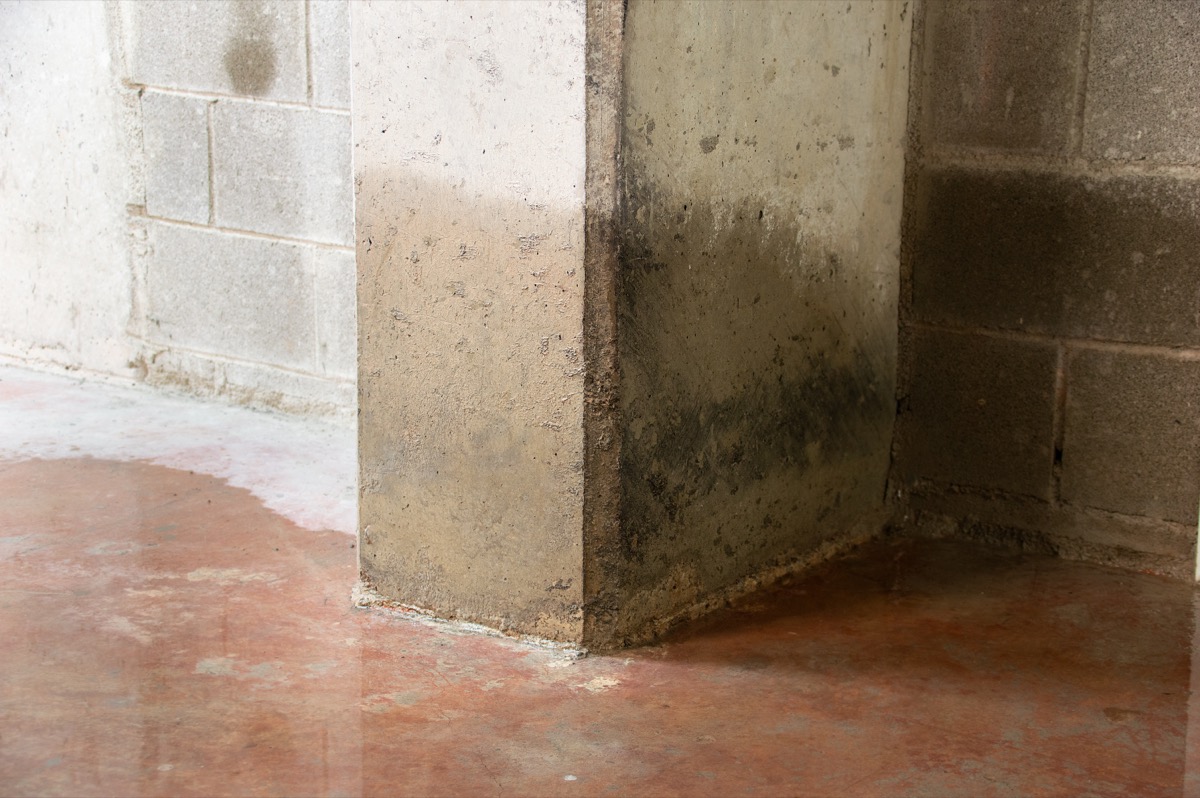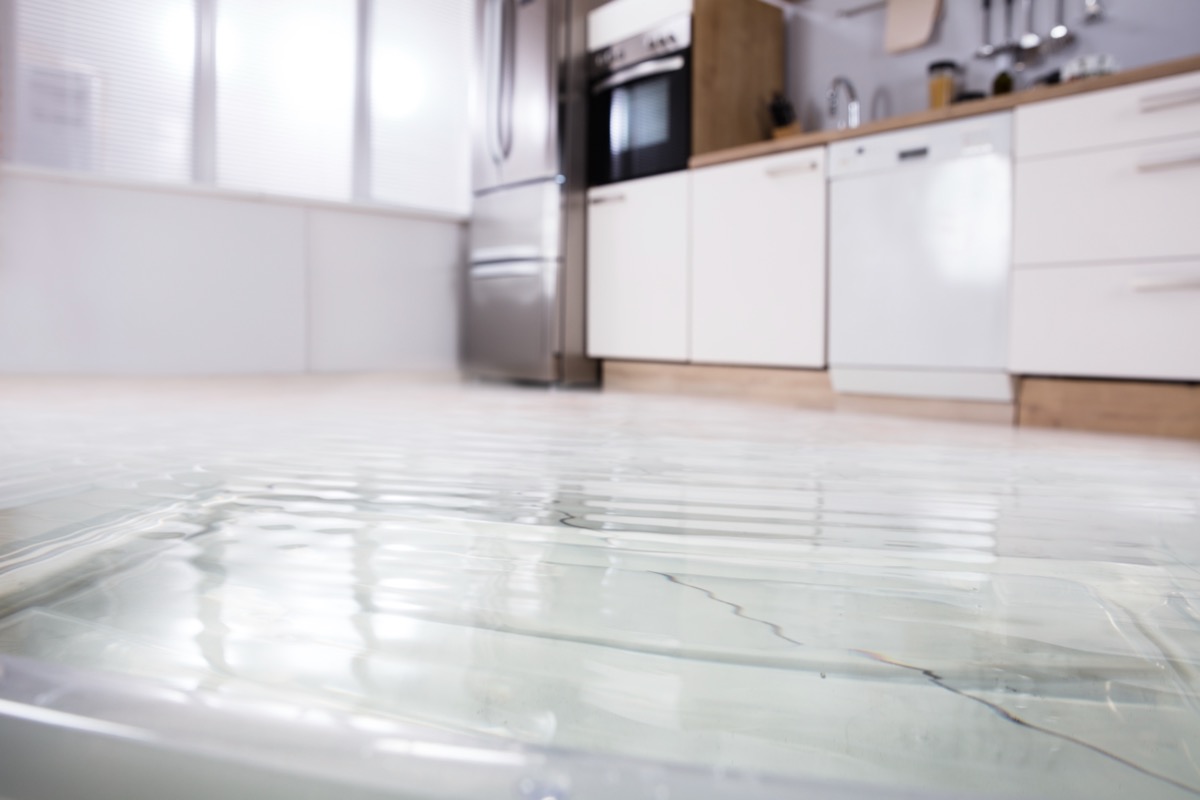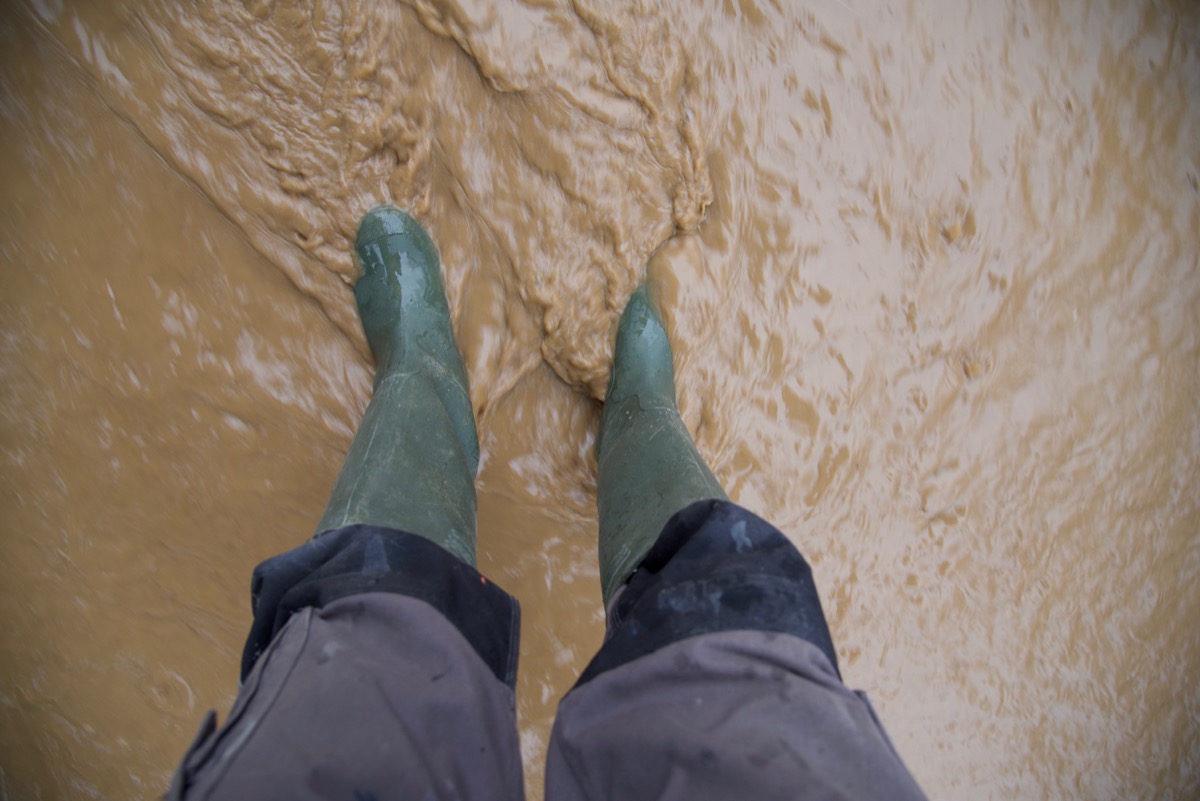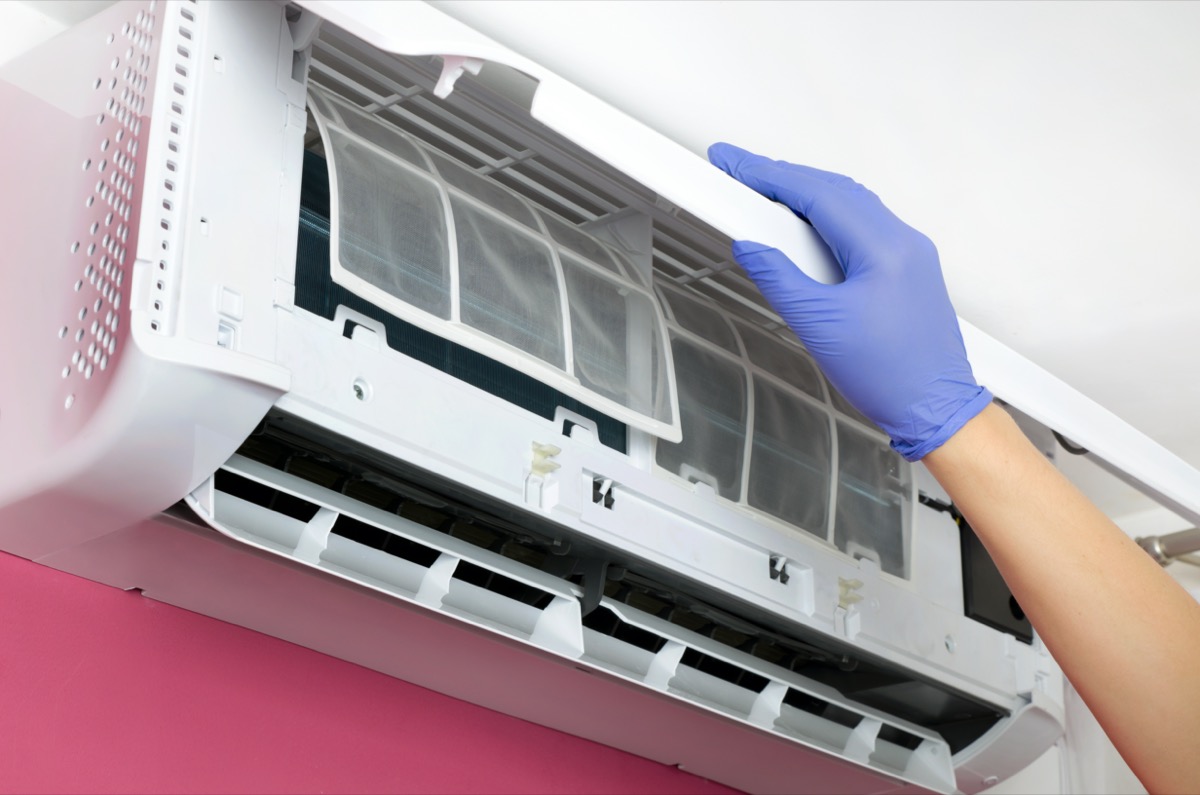RELATED: If You See This in a Hot Tub, Don’t Go In, Experts Say. Summer weather can mean intense heat one day and torrential rain the next, with the latter frequently leading to flooding. And those summer storms are significantly more dangerous than you might expect—flooding is the second-leading cause of weather-related death in the U.S., according to the Centers for Disease Control and Prevention (CDC) If you live in an area where flooding is taking place, the National Weather Service (NWS) says that a popping sound can tip you off to a serious hazard. If you happen to hear “buzzing, crackling, snapping, or popping noises” in your basement where outlets may be submerged, the NWS says you should stay out or you may be at risk for potentially-fatal electrocution. For more tips on how to keep yourself safe this summer, sign up for our daily newsletter! While rooms below ground level may be at greater risk for flood-related electrical hazards, any room can present a serious safety risk during a flood. The NWS explains that the aforementioned sounds can alert you to electrical dangers in above-ground rooms that have experienced flooding, as well. If you want to protect yourself following a flood, the CDC recommends shutting off your home’s electricity, propane tanks, and gas line to avoid potential fires, explosions, and electrocutions. If floodwater does make its way inside your home, there are particular activities that increase your risk of electrocution, even if you don’t hear any suspect noises. The CDC cautions against turning your power on or using any appliances or electric tools if you happen to be standing in flood water inside your home. Instead, call an electrician to make sure your electrical system is in good shape, and have them restore your power rather than attempting to do it yourself. Once it has been deemed safe to re-enter your home and an electrician has reconnected your power, turning on specific appliances first may help you limit further damage to your space.ae0fcc31ae342fd3a1346ebb1f342fcb The CDC recommends turning fans, air conditioners, and dehumidifiers on upon re-entering your home to help dry out anything that may have gotten wet and to mitigate any potential mold hazards in your space. While you’re cleaning up your home post-flood, the health authority suggests wearing both rubber boots and plastic gloves to limit your contact with floodwater, which may contain environmental and medical waste that can make you sick. RELATED: Never Do This When You Shower in the Morning, Doctors Warn.



